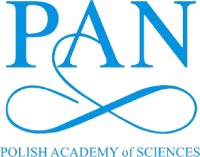1 Marie Curie PhD position available at UniNe within NOAH Innovative Training Network
Network of Functional Molecular Containers with Controlled Switchable Abilities
NOAH (network of functional molecular containers with controlled switchable abilities) is an European training network that has received funding from the European Union’s Horizon 2020 under the Marie Skłodowska-Curie action (H2020-MSCA-ITN-2017). The general scientific aims of the NOAH scientific research program are the development, characterisation and transfer to applications of different types of molecular containers. NOAH aims to bring in a great variety of scientific attributes to the selected Early-Stage Researchers (ESRs), ranging from the experimental organic and inorganic synthesis to computational chemistry. Photo- and electro-chemistry, MS/gas-phase chemistry, X-ray diffraction and optical spectroscopy techniques will be also included in the scientific formation and development of the recruited ESRs. The trainees will also receive education in complementary and transferable skills through attendance to local and network-wide dedicated training activities (e.g. dissemination, communication, organization, governance, ethics…). The training program includes the exposure of the ESRs to chemical research carried out in the non-academic sector by means of full recruitment or short stage secondments (6 months) in one of the four chemical European companies acting as industrial partners.
NOAH offers one Early-Stage Researchers (ESRs) position with a 23-month contract with the possibility to be extended up to 48 months using other funding sources. The ESR will be hosted at Institute of Organic Chemistry, Polish Academy of Sciences under the supervision of Prof. Agnieszka Szumna and will be involved in the project entitled Biomimetic peptide-based chiral molecular capsules through dynamical approach.
The ESR will receive additional training by undergoing relevant secondments at the industrial and other academic partners’ facilities, Leitat (Spain) and Institute of Chemical Research of Catalonia (ICIQ, Spain); respectively.
Eligibility requirements
EU eligibility criteria for candidates: Candidates of any nationality but in order to be eligible for the positions the following criteria applies to all applicants:
- The applicant shall at the time of recruitment be in the first four years of his/her research career and have not not been awarded a doctoral degree.
- The applicant must not have resided or carried out his/her main activity in the country of the host institute for more than 12 months in the 3 years immediately prior to the recruitment.
Candidates profile: candidates must hold a Master’s degree in Chemistry with excellent academic transcripts. We are looking for highly motivated students with good communication skills.
All candidates must prove full proficiency in spoken and written English (B2 certificate, TOEFL).
Job conditions
Appointment under full-time employment contract for a period of 23 months funded by the NOAH ITN project. The contract can be extended from other sources at the end of the 26th month and up to 48 months.
Competitive remuneration (Living Allowance = €3110/month (correction factor to be applied per country) + mobility allowance = €600/month + family allowance if applicable = €500/month). Monthly salary for the fellow and institution costs before any deductions.
Additional funding for participation to courses, workshops, conferences, etc.
The possibility of enrollment in a Doctorate program to lead to a PhD dissertation.
Starting date: ESRs are expected to start from February 2020 (estimated time).
Calls will be open for 1 month and resolved within the three following weeks. The recruitment call (C4) will be open to December 31st 2019.
Apply now at www.noah-itn.eu
Questions regarding the recruitment can be sent to: noah@noah-itn.eu.
This project has received funding from the European Union’s Horizon 2020 research and innovation programme under the Marie Skłodowska-Curie grant agreement No 765297.

 Continue with Facebook
Continue with Facebook


